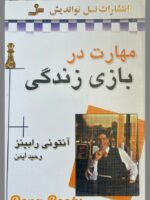پژواک جانسرود دلآیینگان
غزلواره *
مگر نه شعر خواهر زیباییست؟
مگر نه من
در برابر زیبایی
هیچم؟
پس از کجاست،
نمیدانم،
و یا چراست
— زیبا خانم،
زیبا جانم!—
که باز،
باز،
از من میپرسی
که از کجاست
و یا چراست
که، مثل مارِ نخستین،
جهان و جان خدا را
وانهادهام
و در تو میپیچم.
جوانهایست دل خوبت از جوانیی من:
چرا که از قدیمترین دندهی خودم به جهانت آوردند
و مادرم گشتی،
دخترکم،
دلبرِ من،
همسرم!
چرا که هرگز درنیافت مرا
مادری که هیچگاه نشد باشد
فراترینهای از هیچ
در انبوه خودپرستیی پدرم؛
و جز خیالی از آسودن در مهربانیی اردیبهشتیی تو نبود
تلنگری
کز خواب بیگذشته و بیآینده
در بهشتِ خدا
بیدارم کرد
و از هر آنچه خدایی بود
اما خودم نبود
بیزارم کرد.
و از خودت میپرسم:
جوانهی جانِ جوانِ من
–حوا جانم،
حوا خانم!—
چرا نباید بتوانی
دیگر بار
فریبم دهی؟
مگر من آدم نیستم؟
مگر فراتر از آغوش تو بهشتی هم هست؟
مگر،
اگر تو نباشی،
برای من
گذشتهای،
اکنونی،
آیندهای
–سرشته بافتش
از شادیی سرشتیی من—
در خط بیشناسهی هر گونه سرنوشتی هم هست؟
12 مارس 96- بیدرکجا
Esmaeel Khoyi has said about Sayeh that he is like Hafiz and it seems that he is thrown to us from the heart of literature history. His Ghazals are said to be in two kinds: Amorous and social Ghazals. In my opinion, his Ghazals are a result of personal experiences and are amorous poems, even his social poems, and I believe that a love view means looking amorously at everything and everyone. Occasionally, this look is with anger and hatred, which is considered as the other side of the love coin and sometimes it is a kind and enthusiastic look. However, in both cases it is seeing, watching closely, changing and asserting, and regarding the addressee, it is showing, changing and making him or her to judge. In my opinion, Sayeh is a poet who takes an accurate look at social, personal and political situation of human and starts praising or blaming. In his Ghazals or the poems which are in Nima`s style, there are few traces of the colloquial language but they are full of popular feelings and people are present everywhere in his poems.







There are no reviews yet.